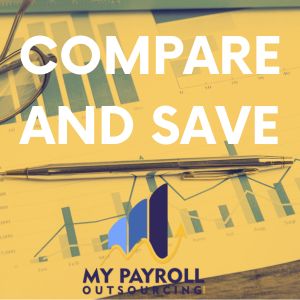
Payroll Service For Accountants | Compare, Research, Save
Comprehensive Buyer’s Guide: Payroll Outsourcing for Accountants
As an accountant seeking to streamline payroll processes and enhance overall efficiency, outsourcing payroll services can be an excellent solution. This buyer’s guide aims to provide accountants with a comprehensive understanding of payroll outsourcing, its advantages, key features to consider, and essential factors to evaluate when choosing a payroll outsourcing provider.
Advantages of Payroll Outsourcing:
- Time and Cost Savings: By outsourcing payroll, accountants can free up valuable time spent on administrative tasks, allowing them to focus on core accounting functions. Additionally, outsourcing eliminates the need to invest in payroll software, updates, and training, resulting in cost savings.
- Compliance and Accuracy: Professional payroll outsourcing providers stay up to date with constantly changing tax regulations and compliance requirements. They possess the expertise to accurately calculate employee taxes, deductions, and benefits, reducing the risk of errors and penalties.
- Enhanced Security: Reputable payroll outsourcing companies employ robust data security measures, safeguarding sensitive employee information and protecting against data breaches.
- Access to Expertise: By partnering with a payroll outsourcing provider, accountants can leverage the expertise of professionals who specialize in payroll management. This ensures accurate calculations, timely tax filings, and expert advice on complex payroll issues.
- Scalability and Flexibility: As businesses grow or encounter fluctuations in employee numbers, payroll outsourcing offers the flexibility to scale services up or down to accommodate changing needs.

Key Features to Look for in a Payroll Outsourcing Provider:
- Payroll Processing and Administration: The provider should offer comprehensive payroll processing services, including accurate calculation of wages, salaries, taxes, and deductions. They should handle direct deposits, tax withholdings, and year-end reporting.
- Tax Compliance and Reporting: Ensure the provider stays up to date with tax laws, regulations, and reporting requirements. They should be adept at handling local, state, and federal taxes, generating tax forms (W-2, 1099), and submitting payroll tax returns accurately and on time.
- Employee Self-Service Portals: Look for a payroll outsourcing provider that offers user-friendly self-service portals, allowing employees to access their pay stubs, tax forms, and personal information, reducing administrative burdens.
- Integration Capabilities: Consider providers that seamlessly integrate with existing accounting systems, such as bookkeeping software or enterprise resource planning (ERP) systems, to facilitate efficient data transfer and reduce manual data entry.
- Data Security Measures: Ensure the provider follows stringent security protocols to protect sensitive payroll data, including encryption, secure data centers, and regular data backups.
- Customer Support: Evaluate the level of customer support offered by the provider. Responsive and knowledgeable support staff can address concerns promptly and provide guidance on payroll-related issues.
- Customization and Reporting: Determine if the provider can tailor their services to match specific business requirements and generate customized reports that provide valuable insights into payroll data.
Factors to Consider When Choosing a Payroll Outsourcing Provider:
- Reputation and Experience: Research the provider’s reputation, client testimonials, and industry experience to ensure their credibility and reliability.
- Compliance and Certifications: Verify if the provider is compliant with relevant industry standards, such as SSAE 16 or SOC 1 Type 2 certifications, which demonstrate adherence to strict data security and confidentiality practices.
- Scalability: Consider the provider’s ability to accommodate your business’s growth and changing needs, ensuring they can handle an expanding workforce or evolving payroll requirements.
- Pricing Structure: Understand the provider’s pricing model, including any additional fees or hidden charges. Compare pricing with the services offered to ensure fair value.
- Service Level Agreements (SLAs): Review SLAs to understand the provider’s commitments regarding response times, accuracy, and quality of service.
- Client References: Request references from existing clients and engage with them to gain insights into the provider’s performance, responsiveness, and overall satisfaction levels.
Outsourcing payroll services can significantly benefit accountants by reducing administrative burdens, enhancing accuracy and compliance, and improving overall efficiency. When selecting a payroll outsourcing provider, accountants should consider the advantages, key features, and factors mentioned in this guide. By conducting thorough research and due diligence, accountants can make an informed decision that aligns with their business requirements and ultimately contributes to their success.